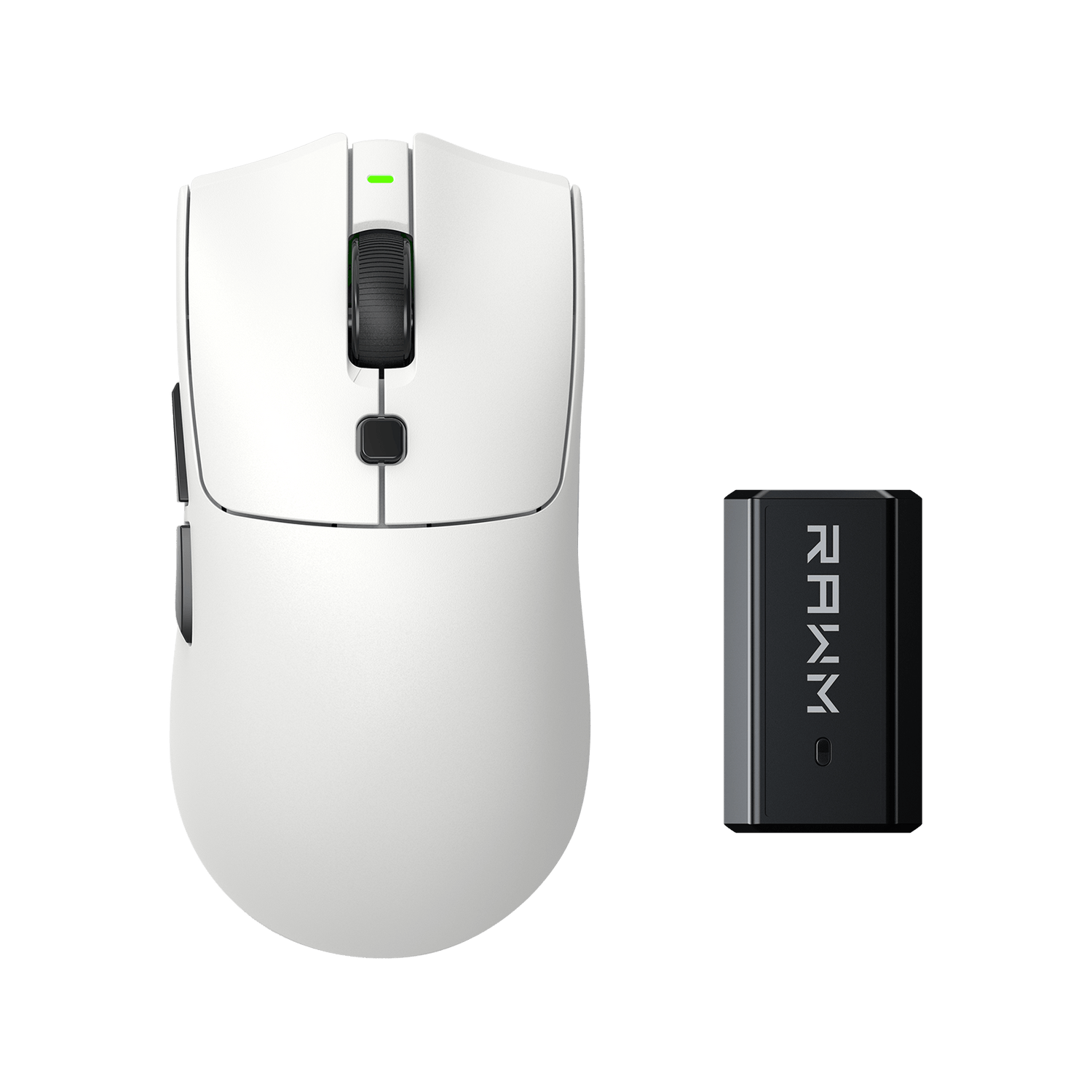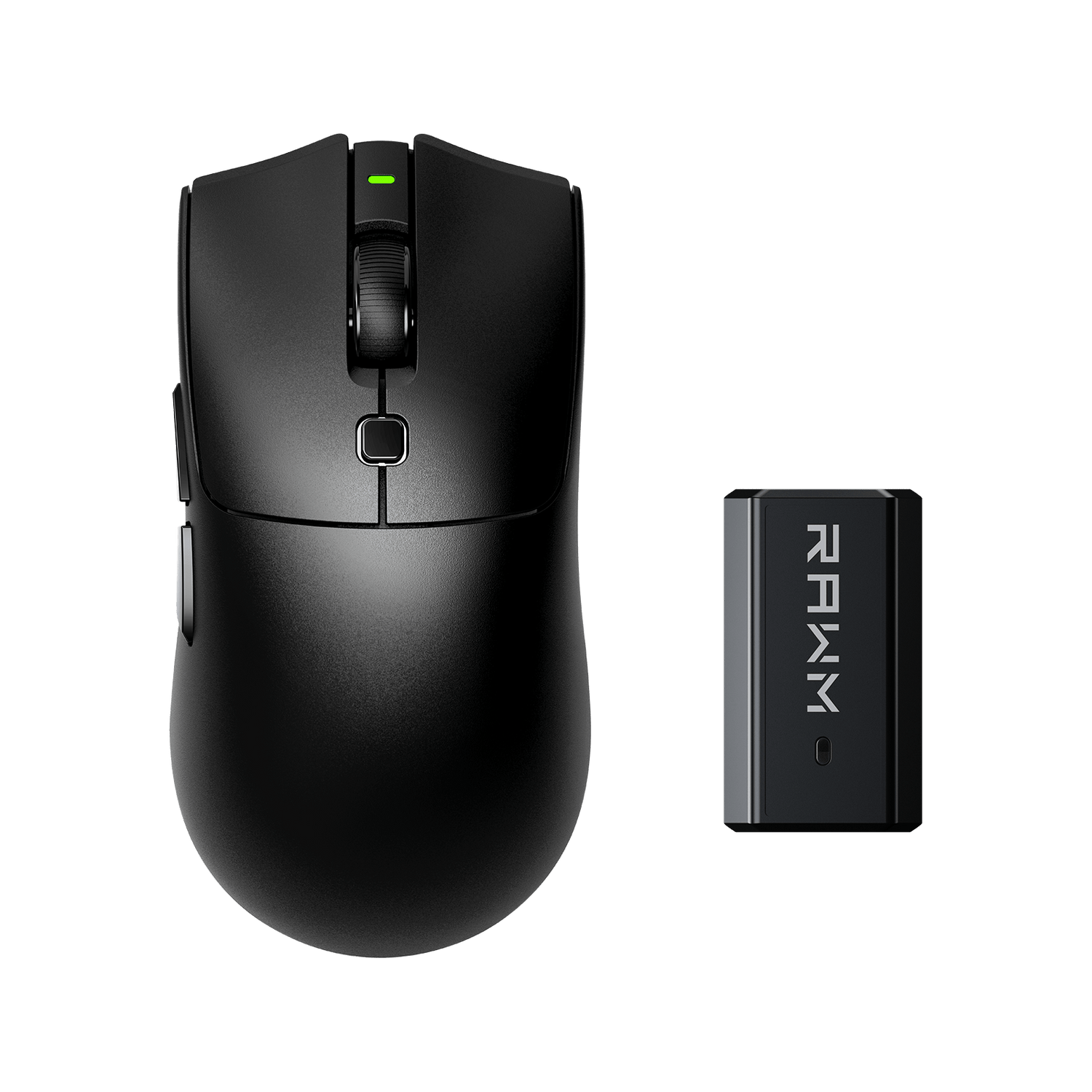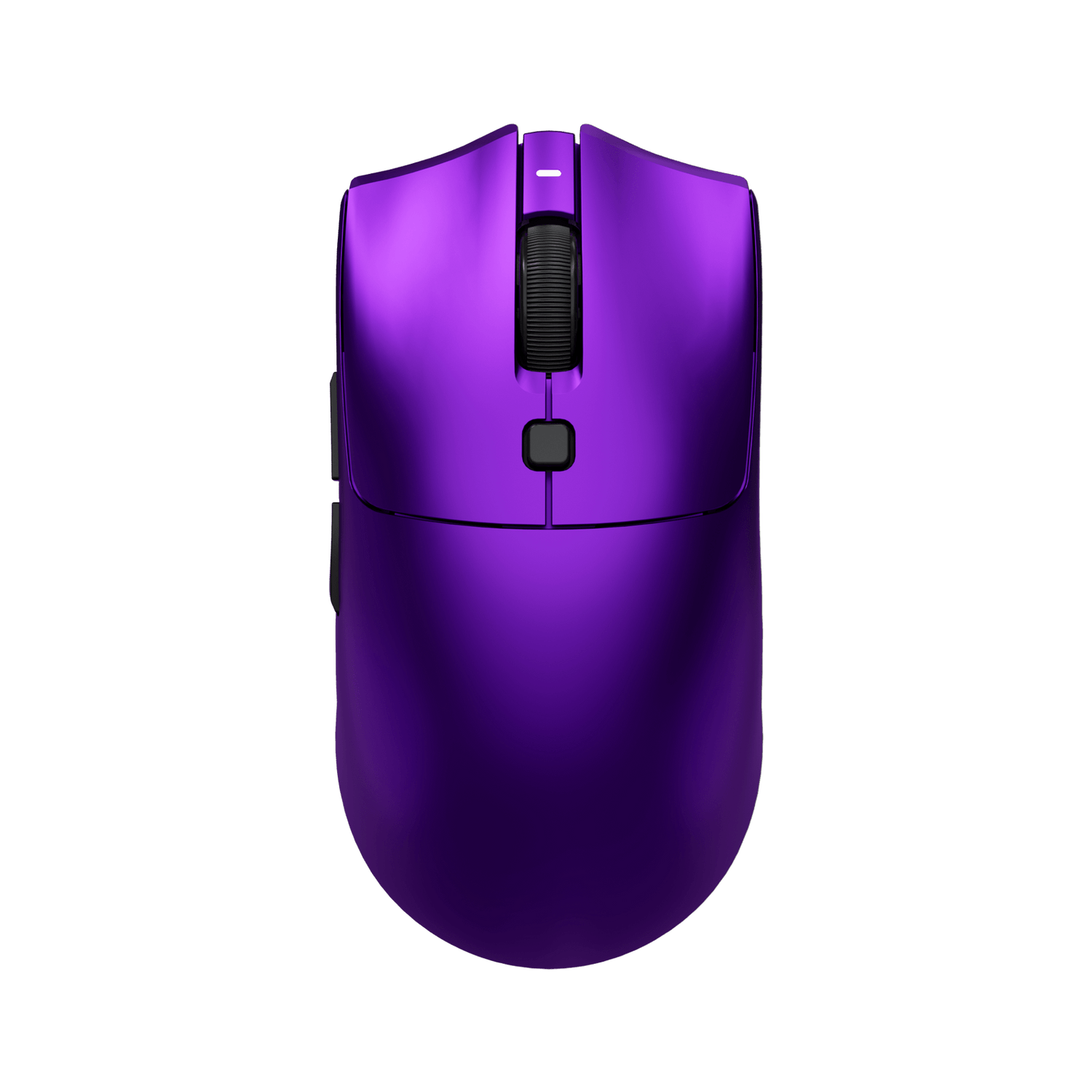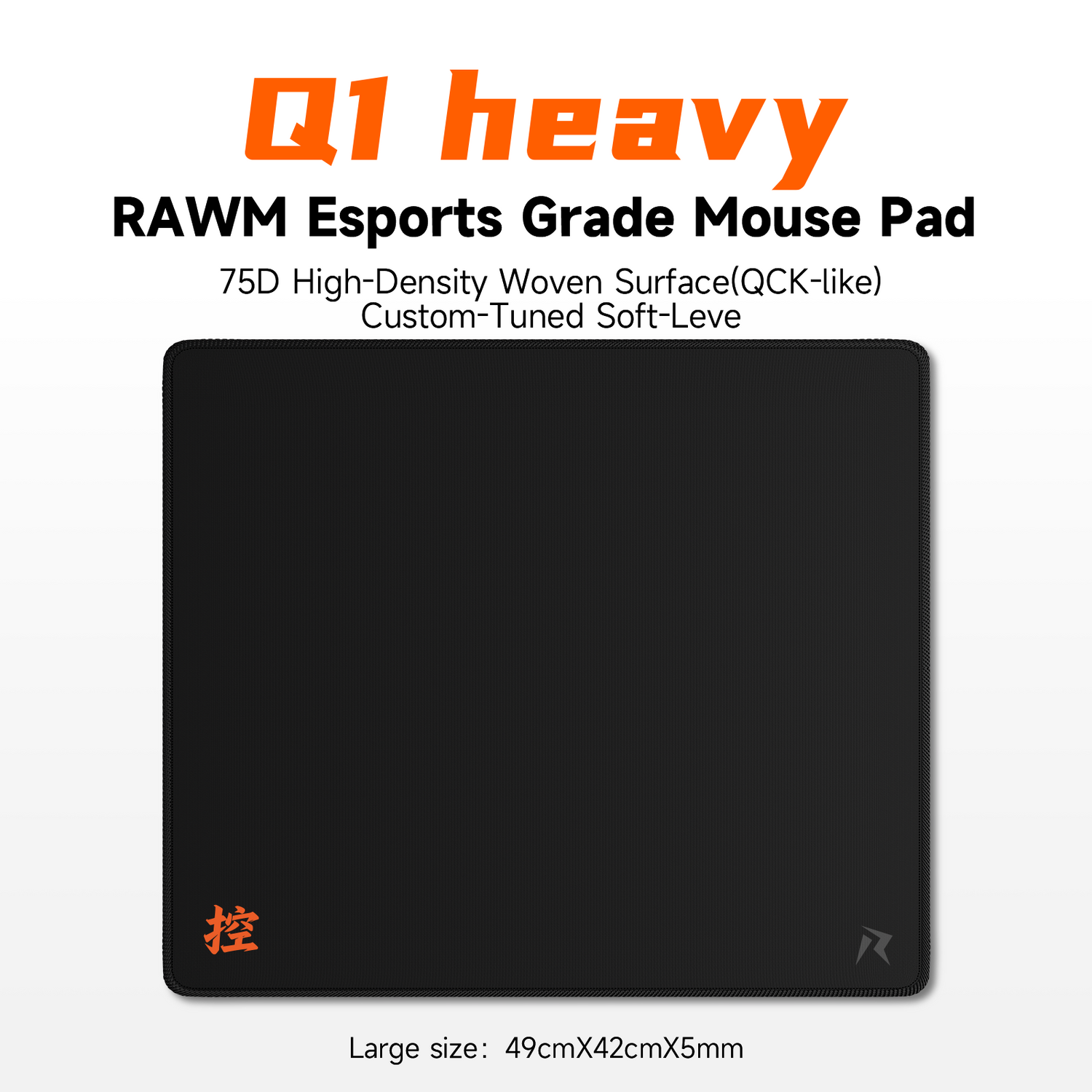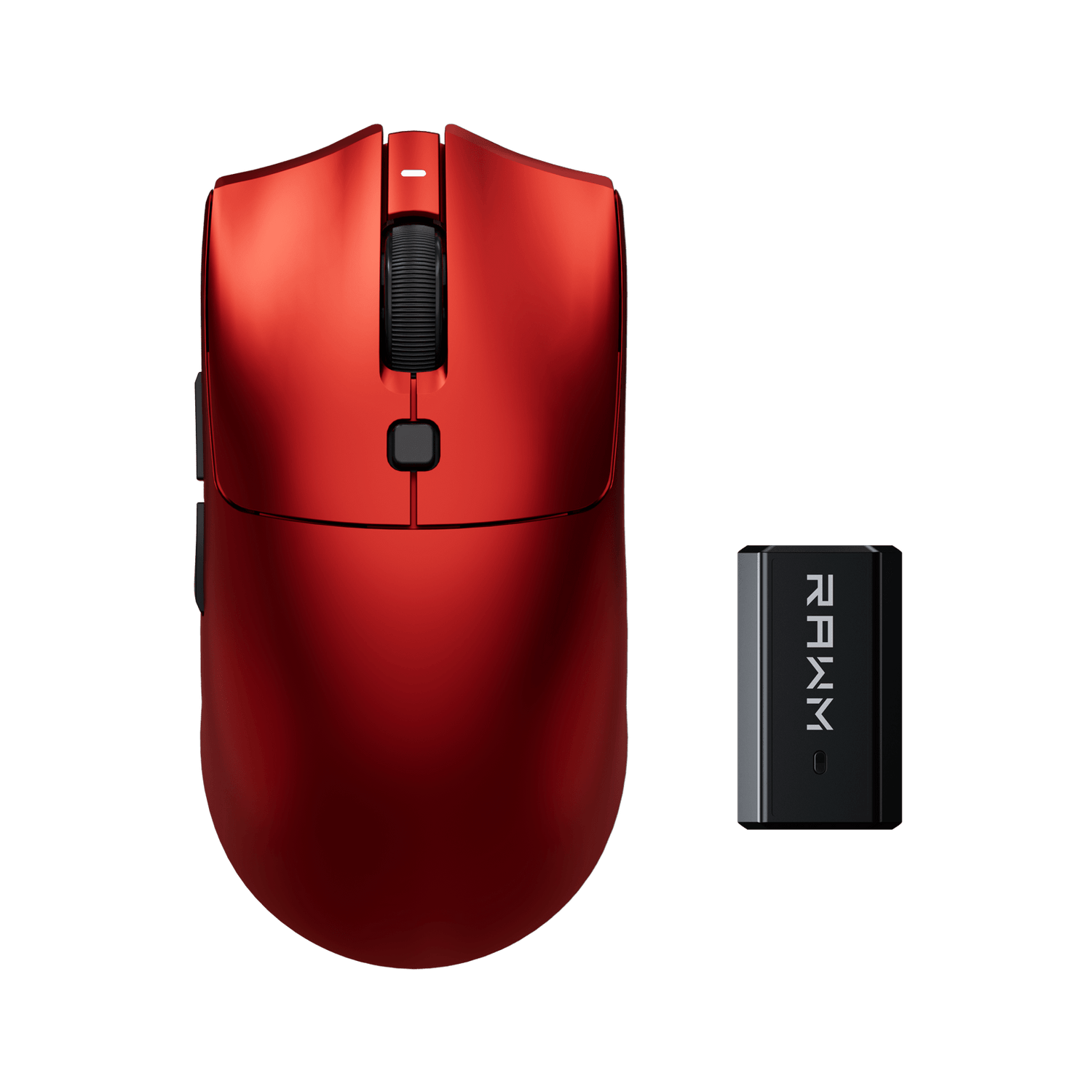
What is battery life like in wireless mice?
1. What Determines the Best Wireless Mouse Battery Life?
2. Sensor Efficiency and Its Role
3. Wireless Mode and Polling Rate
4. Battery Capacity and Charging Technology
5. How Usage Habits Affect the Best Wireless Mouse Battery Life
6. Realistic Expectations: What Is the Best Wireless Mouse Battery Life Today?
Battery performance is one of the biggest concerns for anyone switching from wired to wireless peripherals. Whether you’re gaming, working, or simply browsing the web, you expect your mouse to deliver consistent responsiveness without frequent recharging. This is why understanding the best wireless mouse battery life is essential. Many users assume that wireless mice drain quickly or provide inconsistent performance, but modern hardware has evolved significantly. Today’s sensors, wireless protocols, and battery technologies offer the best wireless mouse battery life ever seen, and knowing what affects it can help you choose the right device and maintain optimal performance.
1. What Determines the Best Wireless Mouse Battery Life?
A wireless mouse’s runtime depends on several interconnected hardware and software variables. To understand the best wireless mouse battery life, you first need to know which factors influence how fast energy is consumed.
Key Battery Life Influencers
| Factor | Impact on Battery | Explanation |
|---|---|---|
| Sensor Type | High | High-performance sensors (3395/3950) use more power |
| Polling Rate | Very High | 2000–8000Hz drains significantly more battery |
| RGB Lighting | High | LEDs draw continuous current |
| Wireless Protocol | Medium–High | 2.4GHz uses more power than Bluetooth |
| Battery Capacity | Direct Impact | Larger mAh = Longer runtime |
| Firmware Efficiency | Medium | Power management varies across brands |
Understanding these factors is the foundation of finding the best wireless mouse battery life in real-world usage.
2. Sensor Efficiency and Its Role in the Best Wireless Mouse Battery Life
The optical sensor is one of the largest power consumers in any wireless mouse. While high-end PixArt sensors deliver exceptional precision, they differ widely in power draw.
Common Sensor Types and Their Battery Behavior
| Sensor Model | Performance Level | Battery Efficiency |
|---|---|---|
| PixArt PAW3950 | Ultra-high-end | Medium |
| PixArt PAW3395 | High-end | High |
| PixArt PAW3370 | Mid–High | Very High |
| Office-grade sensors | Low | Extremely High |
High-performance sensors consume more energy because they process more frames per second (FPS). This is why esports mice may show shorter runtimes than productivity-oriented ones.
Why Sensor Choice Matters
Gamers seeking the best wireless mouse battery life often look for optimized high-end sensors like PAW3395, which balance raw performance with energy efficiency. Combined with improved firmware, these sensors can deliver long play sessions without compromising precision.
3. Wireless Mode and Polling Rate in the Best Wireless Mouse Battery Life
Wireless technology dramatically affects battery usage. A mouse running at 1000Hz 2.4GHz mode will drain faster than one operating at Bluetooth 125Hz.
Battery Use by Wireless Mode
| Mode | Average Battery Consumption | Best For |
|---|---|---|
| Bluetooth (125Hz) | Very Low | Office, browsing, general work |
| 2.4GHz (500–1000Hz) | Medium | Gaming & fast response work |
| 2.4GHz Hyper-Polling (2000–4000Hz) | High | Competitive gaming |
Why Polling Rate Impacts the Best Wireless Mouse Battery Life
Polling rate determines how often your mouse reports its position to your PC. Higher values = more communication cycles = more energy consumption.
Example:
-
1000Hz uses roughly 2–3× more power than 125Hz.
-
4000Hz uses 8–10× more power than 125Hz.
If your goal is maximizing the best wireless mouse battery life, using Bluetooth for office work and switching to 2.4GHz for gaming is often the ideal workflow.
4. Battery Capacity and Charging Technology in the Best Wireless Mouse Battery Life
Battery capacity directly determines how long your mouse lasts per charge. But capacity alone doesn’t tell the full story—charging efficiency and battery type also influence performance.
Typical Battery Types
| Battery Type | Description | Battery Life Results |
|---|---|---|
| Li-ion cell | Standard rechargeable | Balanced, common in gaming mice |
| Li-Po (lithium polymer) | Lightweight & efficient | Excellent runtime + low weight |
| AA/AAA Replaceable | Non-rechargeable | Extremely long life but heavier |
Battery Capacity & Runtime Estimation
A typical premium wireless mouse battery ranges from 300–700mAh.
But a well-optimized 300mAh Li-Po battery can outperform a poorly optimized 500mAh one.
Example: High-Efficiency Runtime
If you’re looking for the best wireless mouse battery life, devices like the RAWM ER21PRO showcase how modern firmware plus efficient sensor control can stretch runtime significantly even at high polling rates.
5. How Usage Habits Affect the Best Wireless Mouse Battery Life
Your daily behavior has a surprisingly large impact on battery life.
Usage Factors That Influence Runtime
| Habit | Battery Impact | Explanation |
|---|---|---|
| Playing at max brightness RGB | High | Multiple LEDs pull constant current |
| Using hyper-polling all day | Very High | Exponential power drain |
| Long idle periods | Depends | Some mice auto-sleep efficiently; others don’t |
| Using glass or reflective surfaces | Medium | Forces sensor to work harder |
Tips to Improve the Best Wireless Mouse Battery Life
-
Reduce RGB brightness or turn it off
-
Use 2.4GHz only when gaming
-
Switch to Bluetooth for general work
-
Use a pad-friendly surface to reduce sensor load
-
Keep firmware up to date
-
Enable sleep mode or smart power-saving features
These small adjustments can extend your best wireless mouse battery life by 20–60%.
6. Realistic Expectations: What Is the Best Wireless Mouse Battery Life Today?
Modern gaming mice now reach exceptional endurance thanks to improved sensors, tighter firmware optimization, and higher-efficiency wireless chips.
Typical Battery Life Range
| Mouse Category | Expected Runtime | Notes |
|---|---|---|
| Office Wireless Mouse | 3–12 months | Very low polling rate |
| Gaming Mouse (1000Hz) | 40–120 hours | Balanced mode |
| Gaming Mouse (2000–4000Hz) | 20–60 hours | High power draw |
| Bluetooth Use | 100–300 hours | Lowest energy consumption |
What Counts as the Best Wireless Mouse Battery Life Today?
A modern performance mouse offering 60–120 hours of 2.4GHz gameplay is considered top-tier. With Bluetooth mode, runtimes easily exceed 150–300+ hours, depending on features.
This is a massive leap compared to older wireless mice from a decade ago.
Wireless mouse technology has advanced to the point where battery life is no longer a limitation. With improvements in sensors, wireless protocols, and firmware efficiency, users can now enjoy exceptional performance without constant recharging. Whether you're gaming, working, or multitasking across devices, understanding the factors that influence the best wireless mouse battery life helps you choose hardware that fits your lifestyle. From battery capacity to RGB behavior, everything plays a role. If you want long-lasting performance with modern responsiveness, focusing on the best wireless mouse battery life ensures reliability, stability, and uninterrupted use throughout your day.
What’s Your Biggest Battery Life Problem with Wireless Mice?
Tell me your symptoms, and I’ll help you diagnose and optimize your mouse’s battery performance.
>>See also How to fix tracking issues? >>>>>







